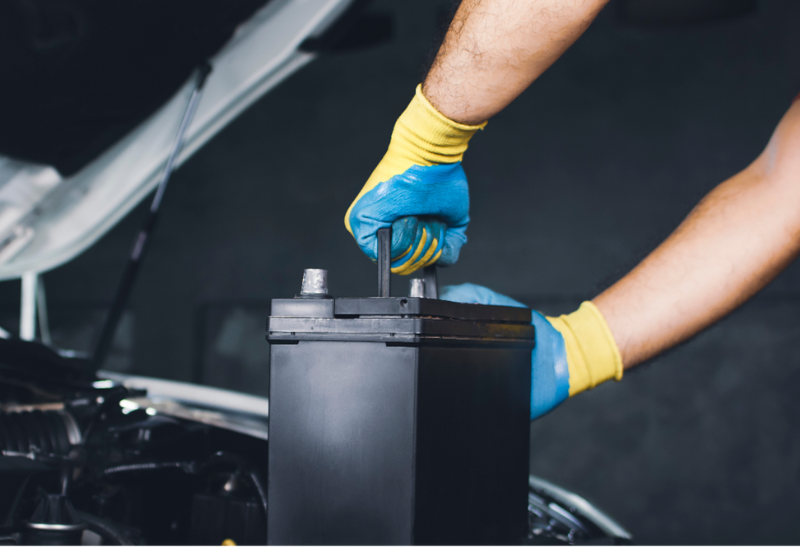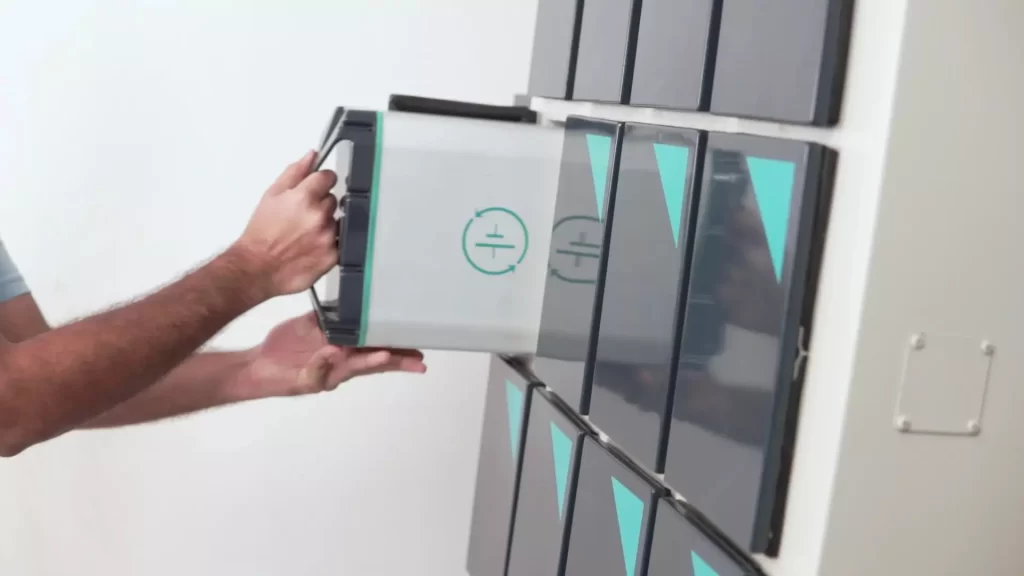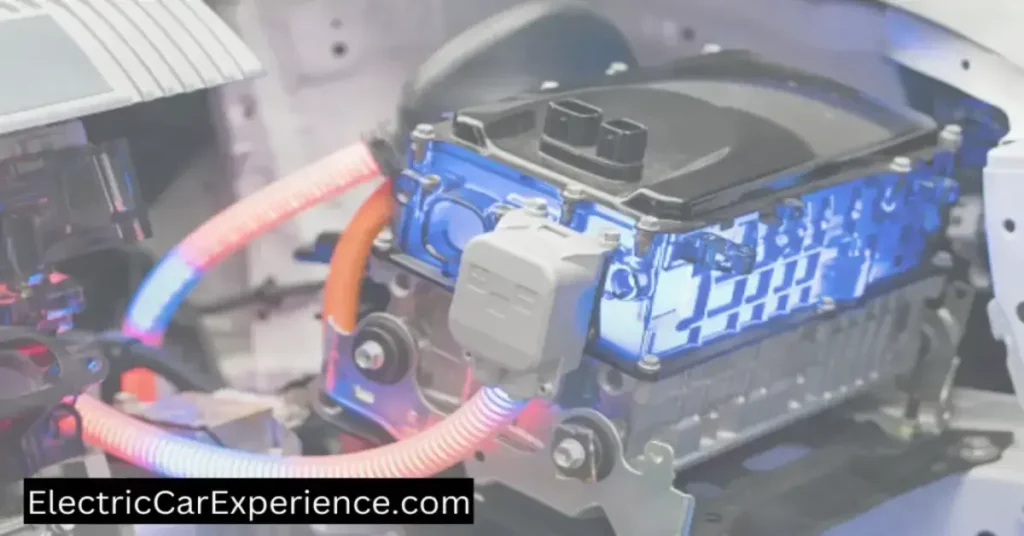
As long as owners of electric car increases in the same way its increase the production of batteries. And which then get degraded after a certain time interval. So What Are The Electric Car Battery Degradation Causes?
Various factors, including overuse, poor maintenance, and extreme temperatures, are electric car battery degradation causes.
- Overuse can cause the battery to lose capacity due to continuous charge-discharge cycles.
- Poor maintenance, such as insufficient charging or water balance, can reduce reliability and performance while increasing the risk of damage.
- Additionally, exposure to extreme temperatures — either too high or too low — can cause irreversible damage to the cells within a battery while reducing performance over time.
To mitigate these effects, drivers should maintain their electric vehicle batteries with regular health checks.
Here are some Electric Car battery Degradation Causes mentioned below in the table
| Electric Car battery Degradation Causes | Description |
|---|---|
| Aging | Gradual capacity loss over time due to chemical changes in the battery |
| High Temperatures | Excessive heat can accelerate degradation and reduce overall battery life |
| Frequent Fast Charging | Rapid charging at high power levels can contribute to battery deterioration |
| Deep Discharging | Allowing the battery to discharge to extremely low levels can be detrimental |
| Overcharging | Charging the battery beyond recommended levels can impact its lifespan |
| Environmental Conditions | Extreme cold, humidity, or harsh conditions may affect battery performance |
Moreover, they should follow manufacturer guidelines for charging and use, optimize temperature management during charging periods, and avoid discharging batteries below their minimum recommended voltage level.
As electric car batteries age, they degrade and lose capacity. It is a normal part of their lifecycle.
Still, a few things can accelerate degradation and cause electric car batteries to lose capacity faster than they otherwise would.
| Small Capacity | The most common cause of electric car battery degradation is simply usage. It loses a small capacity whenever you charge and discharge your battery. It is why it’s important not to let your battery get too low on charge – if you do, you’ll degrade it faster. |
| Include Extreme Temperatures | Other causes of electric car battery degradation include extreme temperatures, physical damage, and manufacturing defects. For example, extreme heat or cold can damage battery cells, causing them to degrade faster. Physical damage, such as a car accident, can also cause battery degradation. And sometimes, batteries are simply defective from the factory and don’t last as long as they should. |
In general, though, electric car battery degradation is normal. With proper care and use, your battery should last for many years before needing to be replaced.
Which Operating Condition Causes Electric Car Batteries to Degrade Quickly?
Electric car batteries are designed to degrade quickly when operating in certain conditions.
The most common cause of battery degradation is high temperatures, which can damage the battery cells and shorten their lifespan.
Other factors that can cause electric car batteries to degrade quickly include high humidity, deep discharge cycles, and fast charging.
| Reduce Electrolyte’s Efficiency | Operating conditions that cause electric car battery degradation include high temperatures, which can reduce the internal electrolyte efficiency, and prolonged exposure to extreme cold or hot environments. |
| Irreversible Chemical Charge | Additionally, discharging beyond a certain level can cause irreversible chemical damage in the cells of lithium-ion batteries due to the formation of metallic lithium deposits and decreased cycle life. |
| Power | Finally, using the vehicle for maximum power draw activities such as acceleration and braking can also increase battery degradation and wear. |
Therefore, it is important to ensure proper maintenance of electric car batteries by monitoring their temperature levels and charge capacity while avoiding abrupt acceleration or braking if possible.
It can cause the battery cells to degrade and lose capacity.
Battery Life of Electric Cars Degrades with Time?
Yes, batteries for electric vehicles degrade over time. This natural process of degradation might affect the battery’s capacity and function. It happens for a variety of reasons.
| Electric Car Battery Degradation Causes | Effects of Battery Degradation |
|---|---|
| Lithium-Ion Battery Chemistry | Capacity Loss |
| High Temperatures | Power Fade |
| Fast Charging | Increased Internal Resistance |
| Depth of Discharge | Voltage Sag |
| Cycle Aging | Longer Charging Times |
| Calendar Aging | Reduced Energy Density |
| Manufacturing Variations | Limited Lifetime |
| Environmental Factors | Increased Heat Generation |
| Battery Management Systems | Unpredictable State of Charge |
| Maintenance and Care | Increased Battery Aging |
The chemistry of lithium-ion batteries, which are frequently used in electric vehicles, is one of the main electric car battery degradation cause.
Electrochemical reactions occur inside the battery during the charging and discharging cycles, resulting in chemical alterations that gradually reduce the battery’s capacity over time. Additionally, the capacity of the battery is further diminished by the consumption of active lithium ions during the creation of a solid-electrolyte interface (SEI) layer on the electrode surfaces.
Battery degradation is additionally impacted by high temperatures. Due to their sensitivity to temperature extremes, electric car batteries can degrade more quickly when exposed to high temperatures.
High ambient temperatures and heat produced during charging and discharging might cause thermal stress and shorten the life of the battery. This problem can be made worse by inadequate heat dissipation, such as inadequate cooling systems.

Fast charging, especially when using high-power chargers, can potentially speed up battery aging. Rapid charging creates more heat, which stresses the battery and quickens deterioration.
Frequent quick charging sessions, particularly those that don’t give the battery enough time to cool down between charges, might accelerate the degrading process. It’s important to remember that battery degradation happens gradually, and modern electric cars are built to lessen their effects.
The use of advanced battery management systems, temperature management systems, and charging algorithms that maximize battery health are just a few of the measures manufacturers use to reduce degradation.
Regular care, such as avoiding high temperatures and charging in accordance with the manufacturer’s instructions, can slow down battery deterioration and increase battery life.
Solutions To Electric Car Battery Degradation Causes
A comprehensive approach is needed to address battery degradation in electric vehicles. Here are several ways to reduce battery deterioration
- Battery Management Systems (BMS) Optimization
- Optimizing charging and discharging profiles by implementing cutting-edge BMS algorithms.
- Balancing cell voltages to avoid individual cells from being overcharged or deeply discharged.
- Tracking battery health indicators and giving precise state-of-charge data.
- Thermal Management
- Putting in place efficient heating and cooling systems to maintain the ideal battery temperature.
- The battery must be preconditioned before charging or using a vehicle in extremely hot weather.
- Avoiding extended exposure to hot temperatures since they hasten depreciation.
- Charging Practices
- Avoid using high-power quick charging frequently, especially during hot weather.
- Choose slower, more gradual charging to ease the battery’s strain.
- Observe the manufacturer’s recommendations for charging intervals and charge levels.
- Battery Pack Design and Chemistry
- Develop battery chemistries that have a longer lifespan and a lower rate of degradation.
- Improve the heat dissipation and cell balancing in battery pack designs.
- Improve cell insulation and packing methods to reduce external stress.

- Intelligent Battery Care
- Update the battery management software frequently for increased effectiveness.
- Run routine diagnostics and battery health checks.
- Use intelligent charging schedules to reduce the battery’s needless stress.
- Education and User Awareness
- Inform users of the best charging and driving techniques.
- Support environmentally friendly driving practices including regenerative braking and quick acceleration.
- Increase public understanding of the value of good battery care and maintenance.
Summary of Solutions for Electric Car Battery Degradation Causes
| Solutions to Electric Car Battery Degradation Causes | Description |
|---|---|
| Optimal Charging Practices | Follow manufacturer-recommended charging guidelines, avoiding frequent fast charging and extreme temperatures. |
| Battery Management Systems (BMS) | Use advanced BMS to monitor and optimize battery health, including temperature regulation and balancing cell voltages. |
| Thermal Management Systems | Implement effective cooling systems to maintain optimal battery operating temperatures. |
| Improved Battery Chemistry/Materials | Research and develop advanced battery technologies with enhanced durability and resistance to degradation. |
| Active Thermal Conditioning | Utilize active thermal conditioning systems to keep the battery within an optimal temperature range. |
| Cell Balancing and Conditioning | Implement techniques to ensure uniform cell performance and periodic conditioning cycles. |
| Predictive Battery Maintenance | Employ data analytics and predictive algorithms to proactively identify and address degradation issues. |
| Battery Degradation Warranty | Offer warranty coverage specifically for battery degradation, providing replacement options for degraded batteries. |
| Battery Pack Upgrades/Refurbishment | Provide options to upgrade or refurbish battery packs, replace degraded cells, or adopt advanced technologies. |
| Research and Development | Continue R&D efforts to improve battery longevity and performance in electric vehicles. |
These solutions are designed to minimize electric car battery degradation causes and increase the battery life of electric vehicle batteries. These solutions may eventually become even better because of ongoing developments in battery technology and business procedures.
Tesla Battery Degradation
Tesla electric vehicles use lithium-ion battery technology, which degrades over time. While Tesla takes a number of steps to reduce battery degradation, it’s vital to realize that some degree of degradation is normal and to be anticipated. The following are some crucial points regarding Tesla battery degradation:
- Battery Longevity
Tesla designs its battery packs with a long lifespan in mind. After eight years or a particular amount of miles (which varies depending on the specific model), they aim for their batteries to still have 70–80% of their initial capacity.
- Battery Management System (BMS)
Modern battery management systems that track and improve battery performance are included in Tesla automobiles. To reduce stress on the battery and increase its longevity, the BMS helps manage the charging and discharging processes.
- Thermal Management
Effective thermal management systems are used in Tesla automobiles to control battery temperature during charging, driving, and under extreme circumstances. By doing this, the effect of high temperatures on battery degradation is reduced.
- Over-the-Air Updates
Tesla’s vehicles can receive BMS updates via over-the-air software updates from the company. This enables performance optimization and further advancements in battery management.
- Supercharging and Fast Charging
Due to increased heat generation, frequent usage of high-power Superchargers or fast charging stations might affect battery degradation. To reduce degradation, Tesla advises using Superchargers for long-distance travel and relying on slower charging techniques for daily charging.
- Battery Warranty
Tesla provides warranty protection for its battery packs, which normally includes a predetermined number of years or miles before the battery’s capacity drops below a predetermined level. The length of the warranty varies by location and specific car model.
- Driving and Charging Habits
Aggressive driving, excessive deep discharges, and regular charging at high state-of-charge levels can all accelerate the degradation of batteries. Utilizing advised charging and driving techniques helps reduce degradation.
It’s crucial to remember that battery degradation rates can change depending on a variety of factors like weather, road conditions, charging habits, and the way each unique car is used. It is possible to improve battery health and lengthen its lifespan by performing routine maintenance and following the manufacturer’s instructions.
Solutions For Tesla Battery Degradation
There are a number of strategies and procedures that can help keep batteries in good condition and reduce the degradation of batteries in Tesla vehicles. The following are some specific remedies for Tesla battery degradation:
- Avoid Extreme Temperatures
Tesla advises against exposing the car to extremely hot or cold temperatures whenever feasible. Maintaining an ideal operating temperature range can be aided by parking in the shade or using the Tesla mobile app to pre-condition the battery temperature before traveling.
- Optimal Charging Practices
Battery degradation can be reduced by using Tesla’s advised optimal charging practices. This entails staying away from rapid charging frequently, especially with Superchargers, and switching to slower charging techniques for regular charging.
- Limit Deep Discharges and High State of Charge (SOC)
Reduce stress on the battery and prevent degradation by maintaining the SOC in a moderate range, often between 20% and 80%. It may be advantageous to stay away from frequent deep discharges and extended periods of high SOC.
- Manage Supercharging Usage
While using Supercharging only for daily charging will accelerate battery degradation, it is practical for long-distance travel. Tesla advises using Superchargers sparingly and choosing slower charging methods for routine charging requirements.
- Regular Software Updates
Tesla often releases over-the-air software upgrades that enhance both the battery management system (BMS) and the overall performance of the car. Access to the most recent optimizations is ensured by keeping the vehicle’s software updated.
- Battery Preconditioning
Precondition the battery using the Tesla mobile app before starting a fast charge or driving in extremely hot or cold conditions. Preconditioning aids in temperature regulation of the battery, lowering stress and potential damage.
- Warranty and Battery Replacement
Tesla offers warranty coverage for its battery packs, often guaranteeing a particular amount of capacity retention for a given number of years or miles. Consider contacting Tesla for possible battery replacement alternatives if considerable degradation occurs during the warranty period.
It is crucial to remember that these answers are only general suggestions and could change depending on the exact Tesla model and location. To ensure battery health and increase its longevity, regular maintenance and adherence to manufacturer guidelines are crucial.
Conclusion
Conclusion#1: Electric Car Battery Degradation Causes
A number of factors contribute to the electric car battery degradation causes. The main contributing factors include environmental factors, frequent fast charging, deep discharge, and age impacts.
Conclusion#2: Affections on the Electric Car Battery
These elements cause a battery’s performance to decline over time due to chemical changes, electrode deterioration, capacity loss, and overall.
Conclusion#3:Reduction/Solution Techniques for Electric Car Battery Degradation Causes
Optimizing battery management systems, using efficient thermal management, implementing suitable charging procedures, taking into account battery pack design and chemistry, caring for batteries intelligently, and increasing user knowledge are all necessary to reduce degradation.
We can reduce battery degradation and extend the life of electric car batteries, enhancing their overall performance and sustainability, by addressing these issues and putting in place the right solutions.
FAQs
What is the main cause of battery degradation in electric vehicles?
The aging process, which results from chemical interactions and irreversible changes in electrode materials over time, is the primary cause of electric car battery degradation.
How does temperature impact the degradation of batteries?
High temperatures shorten the lifespan of batteries and speed up battery breakdown, which results in higher capacity loss.
Do frequent quick charges accelerate battery degradation?
Fast charging frequently at high power levels can speed up battery degradation because it puts more strain on the cells.
Can deep discharge affect the health of a battery?
A repeated discharge to extremely low levels might result in increased battery deterioration and decreased performance.
Is overcharging harmful to the batteries in electric cars?
Overcharging a battery, or charging it above the limits advised, might harm it and speed up battery deterioration.
How are environmental factors impacted by battery degradation?
Extreme temperatures, excessive humidity, and exposure to hostile environments can all hasten battery deterioration and shorten its lifespan.
Posts Related to Electric Cars and Batteries
- Do Electric Cars Lose Range Over Time (By 2 Years, 3 Years, 5 Years, 10 Years)
- Average Electric Car Battery Replacement Cost
- Why Are Lead Acid Batteries Used In Electric Cars?
- Tesla Battery Degradation Calculator
- Can a Standard Range Tesla be Upgraded to Long Range Tesla
- How Many Years Will Tesla Model 3 Battery Last?
- Should I Get a Long Range Tesla( Worth It? Real Testing done)
- Do Tesla Batteries Catch Fire – Complete Guide 2024
- Tesla Battery Replacement Cost (Hidden Cost, Model S, Model X, Model Y)- Complete Guide 2024?
- Review Of Impact Of Electric Car Charging Station On The Power Grid USA – 2024 Guide

